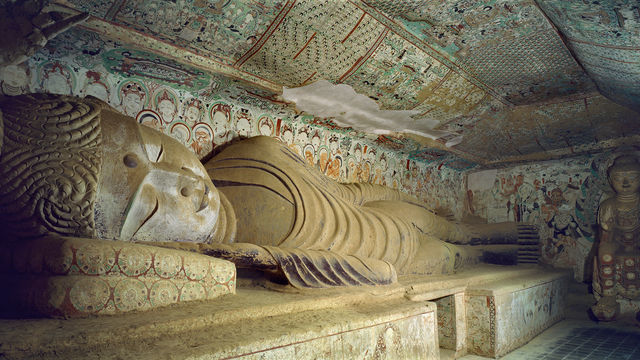
Buddhist Art on China's Silk Road
The Hammer Museum and the UCLA Confucius Institute present programming in conjunction with the Getty Center exhibition Cave Temples of Dunhuang: Buddhist Art on China’s Silk Road, on view May 7–September 4, 2016.
Family Flicks Film Series: The Cave of the Yellow Dog
Sunday, August 7, 11 a.m.
In the Mongolian grasslands, a plucky young girl finds a small dog in a cave and befriends it despite her father’s objections. The Cave of the Yellow Dog’s gentle hymn to nomadic life in the steppes depicts a tale of canine companionship resonant with Buddhist tradition, as well as a familiar parental dilemma.
Body of the Buddha: Art of the Dunhuang Temples with D. Neil Schmid
Tuesday, August 16, 7:30 p.m.
The Dunhuang Temples, located in the Gobi Desert of northwest China, were witness to nearly 10 centuries of exquisite art. They also tell the story of Buddhism’s complex integration into Chinese history. The historian D. Neil Schmid will provide a behind-the-scenes look at the powerful monks, skilled artisans, and religious pilgrims who transformed the Buddha into a specifically Chinese icon.
Performing the Silk Road with Chuen-Fung Wong
Tuesday, August 23, 7:30 pm.
The Silk Road, the ancient network of trade routes stretching from China to the Mediterranean, generated some of the most important artistic, cultural, and religious developments in world history. In this program, the musician and professor Chuen-Fung Wong brings the Silk Road to life via a performance of traditional Chinese chamber music and poetry, emphasizing the trade route and its representations as major inspirations for musical creativity and sonic possibility.
The Cave of the Silken Web (Pan Si Dong)
Wednesday, August 31, 7:30 p.m.
Groove to a rare cinematic treasure with Dublab’s Arshia Haq. DJ Haq will live-mix to the once lost, newly preserved The Cave of the Silken Web. The 1927 silent film is the first film adaptation of that enduring classic of Chinese literature, Journey to the West, complete with demons, evil spirits, and flesh-eating spider women. Cash bar.
All Hammer public programs are free and made possible by a major gift from an anonymous donor.
Generous support is also provided by Susan Bay Nimoy and Leonard Nimoy, Good Works Foundation and Laura Donnelley, an anonymous donor, The Samuel Goldwyn Foundation, and all Hammer members.
The Hammer’s digital presentation of its public programs is made possible by the Billy and Audrey L. Wilder Foundation.







